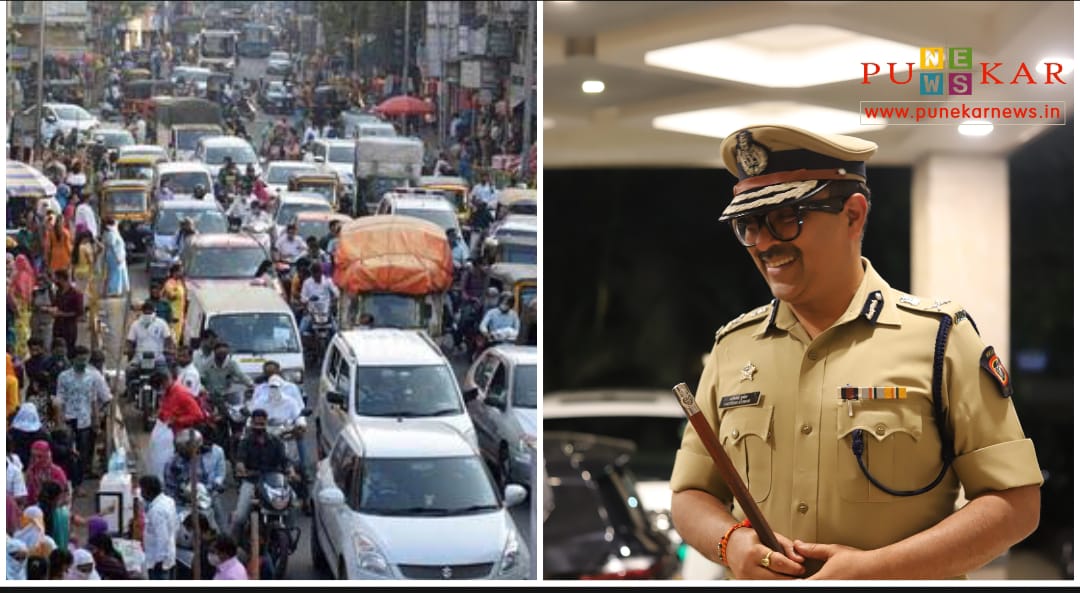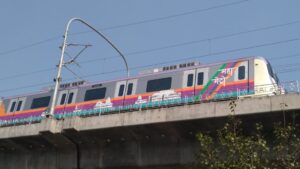Pune Police Unveils Comprehensive Strategy to Tackle City’s Traffic Woes

Pune, 29th March 2024: Pune Police is addressing the escalating traffic concerns in the city with a comprehensive strategy, considering factors such as the city’s rapid expansion and the increasing number of vehicles. The plan involves both immediate and long-term measures aimed at mitigating congestion and improving traffic flow.
Police Commissioner Amitesh Kumar revealed that a detailed traffic plan, projecting developments over the next two decades, will be formulated and submitted to the state government. This initiative comes in response to a petition filed in the High Court regarding the city’s traffic woes. Recently, a collaborative meeting involving the Pune District Collector, Pune Municipal Corporation (PMC) Commissioner, Metro authorities, PMRDA, and Smart City representatives was convened at the Police Commissionerate to address these issues.
Following discussions, the city police submitted an affidavit outlining proposed solutions, including the removal of unscientific traffic bottlenecks, adherence to Indian Road Congress (IRC) standards in constructing new traffic structures and sealing gaps in dividers. Urgent measures such as restricting heavy vehicles from entering the city and identifying congestion hotspots for improvement have been initiated. Notably, 15 major roads and intersections have been prioritized for immediate attention, overseen by Additional Commissioner of Police Manoj Patil and Deputy Commissioner of Police Rohidas Pawar of the Traffic Branch.
In parallel, efforts are underway to enhance the capabilities of the traffic police force. Comprehensive training is being provided to all officers, staff, and traffic wardens, with plans to increase the number of wardens from 440 to one thousand. Emphasis is placed on regulating traffic during peak hours.
Moreover, the integration of artificial intelligence (AI) into traffic management systems is envisioned to streamline operations. AI will facilitate dynamic signal control at 750 major intersections, with approximately 100 automatic signals incorporating laser and radar technology. This system enables signals to adjust based on real-time traffic conditions, optimizing traffic flow. Additionally, CCTV surveillance aids in enforcing traffic regulations, targeting violations such as triple seating, wrong-way driving, and non-compliance with safety gear requirements.
Efforts to address parking challenges include cracking down on the misuse of building parking spaces for commercial purposes. Commissioner Amitesh Kumar affirmed that action will be taken against offenders under the Maharashtra Regional and Town Planning (MRTP) Act, 1969.






